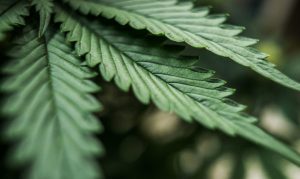What is cannabis defined?
Three types of cannabis refer to the psychoactive properties of cannabis. They are Cannabis Sativa and Cannabis Indica.
These flowers are dried and harvested from the plants. This is one of the most popular drugs in the world. It’s known by many names, including marijuana, pot, and marijuana.
Names for weed are changing as it becomes legalized in more places. People are increasingly using cannabis as a term for weed.
Due to its racist past, “marijuana” is losing popularity. Some feel it is a more accurate name. Some feel it is more neutral than terms like pot or weed, which are often associated with illegal marijuana use.
Cannabis is often consumed to relax and calm the mind. It is also used in some states to treat glaucoma and chronic pain.
Remember that cannabis is a natural product and can still cause strong side effects.
What are the main components of cannabis?
Cannabinoids are more than 120 ingredients that make up cannabis. Experts are still unsure what each component of cannabis does. However, they do have a good understanding of cannabidiol and tetrahydrocannabinol.
Each one has its own uses and effects.
- CBD. It is a psychoactive cannabis cannabinoid. However, it is not intoxicating or euphoric. CBD is often used to reduce inflammation and pain. It can also be used to ease anxiety, nausea, seizures, migraines, and other symptoms. (Epidiolex is the only prescription medication containing CBD and has been approved by the Food and Drug Administration or FDA. This medication is used for certain types of epilepsy. Researchers are still studying the effectiveness of CBD for medical purposes.
- THC. The main psychoactive component in cannabis. THC is the main psychoactive compound in cannabis.
There are cannabis products that only contain THC or CBD. The dried cannabis flower most people associate with marijuana contains THC and CBD. However, some strains may contain more than one. Hemp contains high amounts of CBD but not THC.
We will send you the most recent information on herbs, supplements, yoga and other natural methods to help you manage your health.
What are the short-term effects on cannabis?
There are many short-term effects that cannabis use can have. Some effects are positive, while others can be more dangerous.
The following are some of the most desirable short-term effects:
- Relaxation
- Giddyness
- You can experience the world around you more deeply, including sounds and sights.
- Increased appetite
- Alternate perceptions of events and time
- Focus and creativity
These effects are often less in products with high CBD levels than THC.
Some people may experience side effects from cannabis. Side effects include:
- Questions about coordination
- Rapid reaction time
- nausea
- Lethargy
- Anxiety
- Increased heart rate
- Lower blood pressure
- Paranoia
These effects are also less common when CBD is used in products that contain more THC than CBD.
You can get different effects from cannabis depending on how you consume it. You’ll feel the effects of cannabis within minutes if you smoke it. However, if you take cannabis orally, like in a capsule, it can take several hours for you to feel the effects.
In addition, cannabis often comes in different strains. These are general categories that indicate the effects of various cannabis products. Here are some guidelines about common strains and the potential effects they can have.
What are the long-term effects on cannabis?
Experts continue to try to understand the long-term effects cannabis use. There are many contradictory studies on the topic. Many of the existing studies only focus on animals.
To fully understand the long-term effects of cannabis, we need to conduct more extensive and long-term studies on humans.
Brain development
Research by 2014 Trusted Source points out the potential effects of cannabis on brain development during adolescence.
This research shows that cannabis-using teens have higher levels of learning and memory problems than those who do not use it. It’s not clear if these effects last.
People who use cannabis as a teenager may be at greater risk of developing mental disorders later in life. This includes schizophrenia. Experts are still unsure how strong this connection is.
Dependence
Some people may become dependent on cannabis. Some people experience withdrawal symptoms, including irritability and low appetite.
The National Institute on Drug Abuse Trusted Source says that people who use cannabis before age 18 are four to seven times as likely to develop a cannabis-related disorder than those who begin using it later in their lives.
Respiratory problems
Similar risks exist to smoking tobacco, but cannabis is also a potent alternative. This could be because of inflammation and irritation to the airways.
Cannabis use has been linked to bronchitis and may increase the risk of developing chronic obstructive lung disease (COPD). Recent Trusted Source studies have not shown any evidence linking cannabis use to lung cancer. This area needs more research.
Is cannabis legal?
Although cannabis is still illegal in many areas, more states legalize it for medical and recreational purposes. In the United States, several states have legalized medical and recreational cannabis.
The United States still consider cannabis illegal. Some have legalized cannabis for medical purposes. There is encouraging research that supports CBD for pain relief and inflammation. It is well-established that CBD-based prescription medication Epidiolex can treat certain types of seizures.
There are also differences in the laws regarding cannabis. Some countries allow products that contain only CBD while others consider all forms of cannabis to be a crime.
It would help if you first researched the laws in your locality before you decide to try cannabis.
The bottom line
Cannabis is an increasingly popular term for marijuana or weed. Cannabis can have both short- and long-term benefits, and they can also be harmful.
Start by checking if cannabis is legal in your region.
Talk to your doctor to ensure it doesn’t cross-contaminate with other medications and supplements. You can also get help from your doctor to weigh the risks and benefits for your health.



